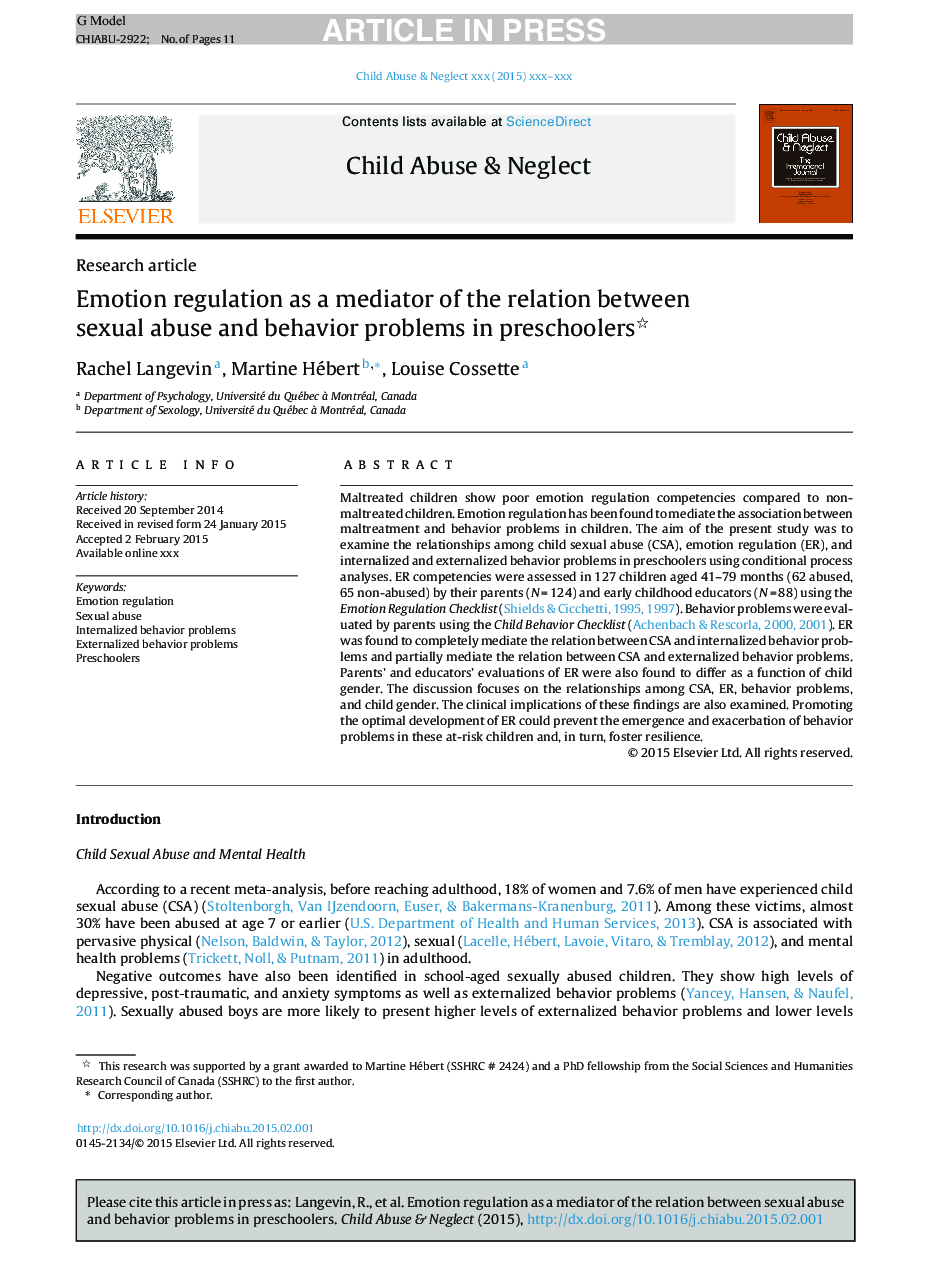| Article ID | Journal | Published Year | Pages | File Type |
|---|---|---|---|---|
| 6832558 | Child Abuse & Neglect | 2015 | 11 Pages |
Abstract
Maltreated children show poor emotion regulation competencies compared to non-maltreated children. Emotion regulation has been found to mediate the association between maltreatment and behavior problems in children. The aim of the present study was to examine the relationships among child sexual abuse (CSA), emotion regulation (ER), and internalized and externalized behavior problems in preschoolers using conditional process analyses. ER competencies were assessed in 127 children aged 41-79 months (62 abused, 65 non-abused) by their parents (NÂ =Â 124) and early childhood educators (NÂ =Â 88) using the Emotion Regulation Checklist (Shields and Cicchetti, 1995, Shields and Cicchetti, 1997). Behavior problems were evaluated by parents using the Child Behavior Checklist (Achenbach and Rescorla, 2000, Achenbach and Rescorla, 2001). ER was found to completely mediate the relation between CSA and internalized behavior problems and partially mediate the relation between CSA and externalized behavior problems. Parents' and educators' evaluations of ER were also found to differ as a function of child gender. The discussion focuses on the relationships among CSA, ER, behavior problems, and child gender. The clinical implications of these findings are also examined. Promoting the optimal development of ER could prevent the emergence and exacerbation of behavior problems in these at-risk children and, in turn, foster resilience.
Related Topics
Health Sciences
Medicine and Dentistry
Perinatology, Pediatrics and Child Health
Authors
Rachel Langevin, Martine Hébert, Louise Cossette,
